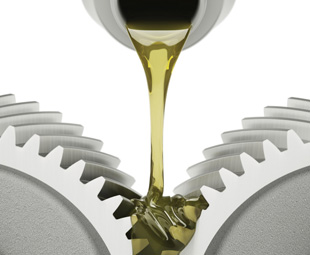Grease up for smooth operation

Regular lubrication forms part of a comprehensive maintenance programme and ensures that vehicles keep rolling smoothly. WILLIAM GEORGE finds out how important lubrication is for vehicles
With dozens of moving parts, a truck and trailer combination needs regular lubrication to stay in top condition. Firms that specialise in lubricants can provide information about the importance of lubrication on vehicles.
Derick Potgieter, oil shop manager at North West Lubricants, says that proper lubrication helps to reduce costly repairs, cool the surfaces from the heat caused by friction, protect from corrosion and maintain cleanliness in vehicle parts.
Vehicles have numerous automotive systems that need lubrication in order for them to provide the best performance and durability.
Mitch Launspach, commercial inland sales manager at Fuchs Lubricants South Africa, explains: “All maintenance of in-warranty vehicles, including the supply of lubricants, has to be handled by the original equipment manufacturer (OEM) concerned.”
Lubrication and maintenance of intricate components (for example, steering systems or wheel bearings) can be complex and may need recommendations from an expert. Furthermore, if a company has mixed fleets, it may also require advice on how to go about ensuring each vehicle is maintained according to the OEM specification.
“An operator that has a mixed fleet of vehicles with a wide range of on-road and off-highway equipment, should look for a lubricant supplier that has a wide range of OEM approvals, as this will help to minimise the number of lubricants that need to be stored on site, without compromising on quality, performance and protection,” Launspach recommends.
It is important to note that some parts may need special attention. Lubrication is essential for those moving parts where friction occurs during operation. Greg Tarr, product application specialist at Fuchs, says some truck owners forget to lubricate some of the important moving parts, such as steering systems.
With time, machinery ages, which causes wear. Grease helps to keep the components in shape, so they can continue working optimally. Launspach says: “Correct service intervals must also be strictly adhered to. It is also in the operator’s best interest to continue to use an OEM-approved lubricant in all applications even after the truck’s warrenty has expired.”
Tarr notes that there are some additional challenges in the lubrication and maintenance process, such as technicians not adhering to correct schedules, cost cutting practices and abuse of equipment, such as overloading of vehicles.
He cautions that the biggest challenge in the industry right now is the sale of cheap aftermarket parts and lubricants, which are not approved by OEMs.
Potgieter adds that some of the challenges to consider are downtime and repair costs. “Equipment efficiency can be increased and operational expenses and downtime reduced when using grease with a long service life, as it helps to effectively seal mechanical components.”
Suppliers call on years of research and development on lubricants to enable a better service life for vehicles. “Lubes and greases have advanced over time as a result of the new component and hardware technology and the OEM’s lubricants specifications,” Potgieter concludes.
It is important for operators to understand their vehicles’ needs in order to minimise the impact of internal friction, wear and tear and other factors that contribute to the costs of maintenance, but, most importantly, to check whether lubricants comply with OEM specifications and recommendations.
Published by
Focus on Transport
focusmagsa




